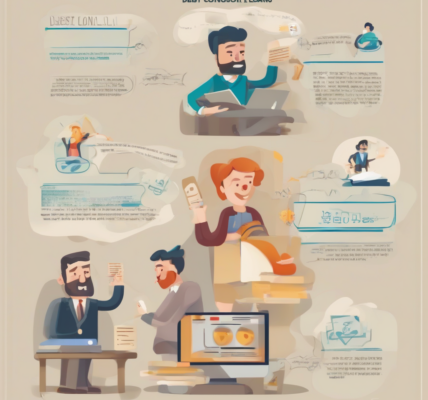Escaping the Payday Loan Trap: Your Guide to Debt Relief
Payday loans, marketed as quick and easy solutions to short-term financial emergencies, often become a vicious cycle of debt for many borrowers. The high-interest rates and short repayment periods can quickly spiral out of control, leading to overwhelming financial stress. If you’re struggling with payday loan debt, know that you’re not alone and there are options available to help you regain control of your finances. This comprehensive guide explores various avenues for payday loan debt relief, empowering you to navigate this challenging situation and build a brighter financial future.
Understanding the Payday Loan Debt Problem
The core issue with payday loans lies in their predatory nature. These loans typically charge exorbitant interest rates, often exceeding annual percentage rates (APRs) of 400%. The short repayment period, often just two weeks, forces borrowers into a cycle of rolling over loans, accruing more fees and interest with each extension. This cycle can become nearly impossible to break, leading to significant debt accumulation.
- High Interest Rates: The astronomical interest rates are the primary driver of the debt trap.
- Short Repayment Periods: The short timeframe makes repayment incredibly difficult for many.
- Rollover Fees: Continuously rolling over loans significantly increases the total debt owed.
- Hidden Fees: Many payday lenders employ hidden fees, further exacerbating the financial burden.
- Aggressive Collection Practices: Some lenders resort to aggressive collection tactics, adding to the stress.
Strategies for Payday Loan Debt Relief
Addressing payday loan debt requires a multi-faceted approach. The most effective strategy often involves a combination of methods tailored to your specific financial situation. Here are some key strategies to consider:
1. Budgeting and Financial Planning
Before exploring debt relief options, creating a realistic budget is crucial. This involves tracking your income and expenses to identify areas where you can cut back. A clear budget provides a foundation for managing your finances and prioritizing debt repayment.
- Track Income and Expenses: Use budgeting apps or spreadsheets to monitor your financial inflows and outflows.
- Identify Areas for Savings: Look for non-essential expenses you can reduce or eliminate.
- Prioritize Essential Expenses: Ensure you’re covering necessities like housing, food, and transportation.
- Create a Realistic Spending Plan: Allocate funds for debt repayment and essential expenses.
2. Negotiating with Your Lender
Directly contacting your payday lender to negotiate a repayment plan is a viable option. Many lenders are willing to work with borrowers facing financial hardship. Negotiating a lower interest rate, extended repayment period, or a payment plan can significantly reduce the burden.
- Contact the Lender: Reach out to the lender and explain your financial situation.
- Propose a Repayment Plan: Offer a realistic plan that you can consistently adhere to.
- Document Everything: Keep records of all communication and agreements with the lender.
- Be Persistent: Don’t be discouraged if your first attempt is unsuccessful. Persistence often pays off.
3. Debt Consolidation
Debt consolidation involves combining multiple debts into a single loan with potentially lower interest rates and a more manageable repayment schedule. This can simplify debt management and make repayments more affordable. However, it’s essential to choose a reputable lender and thoroughly review the terms before proceeding.
- Research Consolidation Options: Explore different lenders and compare their interest rates and terms.
- Assess Your Creditworthiness: Your credit score will influence the interest rates and terms offered.
- Compare Loan Offers: Carefully compare offers from various lenders before making a decision.
- Understand the Terms and Conditions: Review all fees and interest charges before signing any agreement.
4. Debt Management Plans (DMPs)
A debt management plan (DMP) is a program offered by credit counseling agencies that helps you manage and repay your debts. A credit counselor will work with you to create a budget, negotiate with creditors, and consolidate your payments into a single monthly payment. While DMPs can be beneficial, they may negatively impact your credit score.
- Find a Reputable Credit Counseling Agency: Choose a non-profit agency to avoid predatory practices.
- Understand the Fees: Credit counseling agencies typically charge fees for their services.
- Follow the Plan Carefully: Adherence to the plan is critical for its success.
- Monitor Your Progress: Regularly review your progress with your credit counselor.
5. Debt Settlement
Debt settlement involves negotiating with creditors to settle your debt for a lump-sum payment that’s less than the total amount owed. This option can significantly reduce your debt, but it typically results in a negative impact on your credit score. Moreover, it often requires the assistance of a debt settlement company, which may also charge fees.
- Consult with a Debt Settlement Company: Consider working with a reputable debt settlement company.
- Understand the Risks: Debt settlement can severely damage your credit score.
- Evaluate the Fees: Debt settlement companies charge fees, so factor these into your decision.
- Prepare for Tax Implications: Settled debt may have tax implications.
6. Bankruptcy
Bankruptcy is a last resort option for individuals overwhelmed by debt. It involves legal proceedings that can discharge certain debts, but it has significant long-term consequences for your credit score and financial standing. Before considering bankruptcy, it’s crucial to explore all other debt relief options and consult with a bankruptcy attorney.
- Seek Legal Counsel: Consult with a bankruptcy attorney to understand the process and its implications.
- Explore Different Types of Bankruptcy: Chapter 7 and Chapter 13 bankruptcy offer different options.
- Understand the Long-Term Consequences: Bankruptcy significantly impacts creditworthiness for many years.
- Consider the Alternatives: Exhaust all other debt relief options before resorting to bankruptcy.
7. Seeking Financial Counseling
Financial counseling provides valuable support and guidance in managing your finances. A financial counselor can help you create a budget, develop a debt repayment plan, and navigate available resources. Many non-profit organizations offer free or low-cost financial counseling services.
- Find a Reputable Counselor: Look for certified financial counselors or non-profit organizations.
- Discuss Your Financial Situation: Openly share your financial challenges and goals with the counselor.
- Follow the Counselor’s Advice: Adhering to the counselor’s recommendations is crucial for success.
- Attend Follow-Up Sessions: Regular sessions help track progress and address any issues.
Preventing Future Payday Loan Debt
Once you’ve addressed your current payday loan debt, taking steps to prevent future reliance on these high-cost loans is essential. Developing healthy financial habits is key to avoiding this cycle.
- Build an Emergency Fund: Save enough money to cover unexpected expenses.
- Improve Credit Score: A good credit score opens doors to more affordable borrowing options.
- Explore Alternative Borrowing Options: Consider personal loans, credit cards, or borrowing from family and friends.
- Seek Financial Education: Learn about responsible money management and budgeting.
- Avoid Impulse Spending: Develop healthy spending habits and avoid unnecessary purchases.




